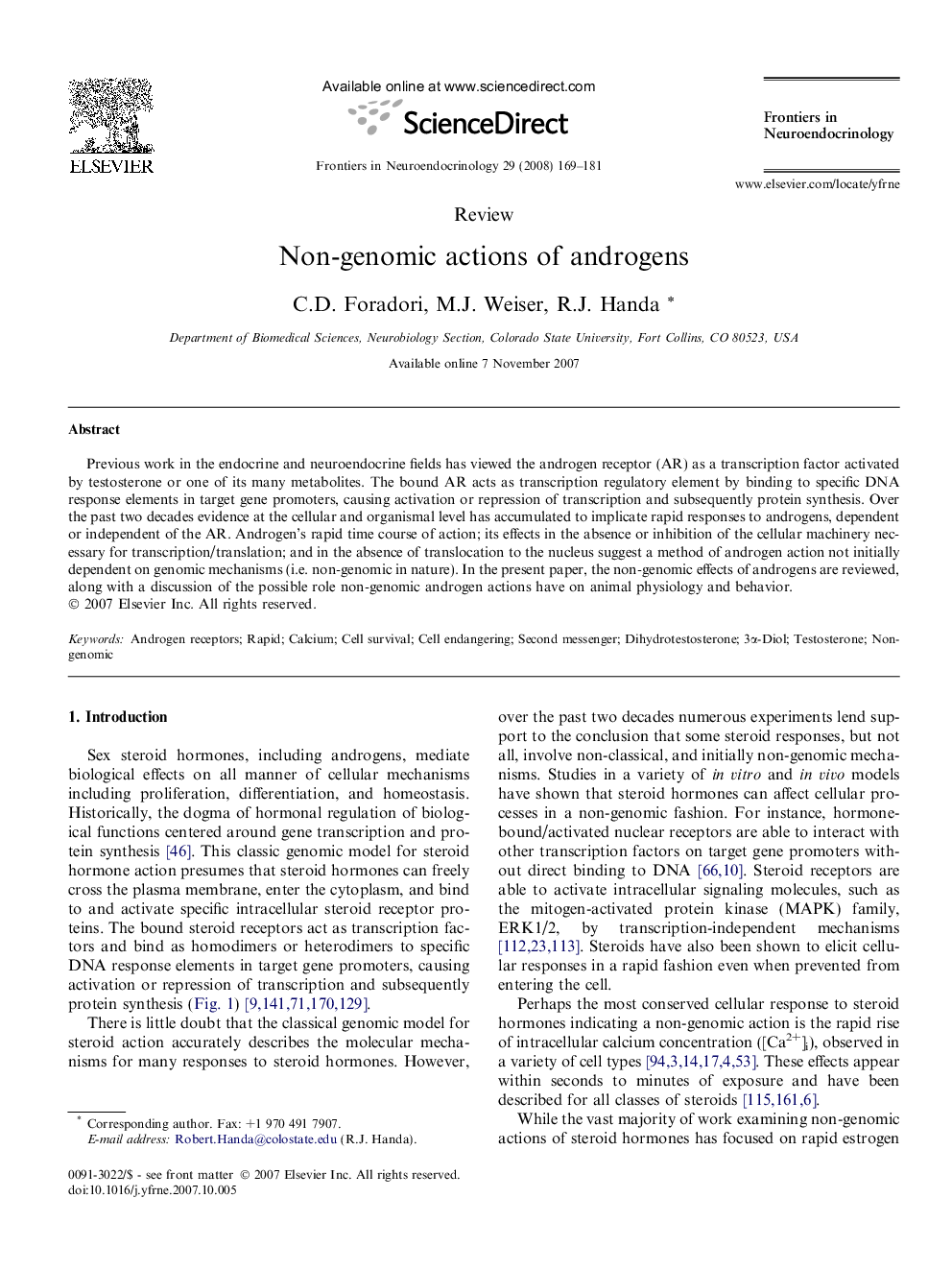| Article ID | Journal | Published Year | Pages | File Type |
|---|---|---|---|---|
| 2799587 | Frontiers in Neuroendocrinology | 2008 | 13 Pages |
Previous work in the endocrine and neuroendocrine fields has viewed the androgen receptor (AR) as a transcription factor activated by testosterone or one of its many metabolites. The bound AR acts as transcription regulatory element by binding to specific DNA response elements in target gene promoters, causing activation or repression of transcription and subsequently protein synthesis. Over the past two decades evidence at the cellular and organismal level has accumulated to implicate rapid responses to androgens, dependent or independent of the AR. Androgen’s rapid time course of action; its effects in the absence or inhibition of the cellular machinery necessary for transcription/translation; and in the absence of translocation to the nucleus suggest a method of androgen action not initially dependent on genomic mechanisms (i.e. non-genomic in nature). In the present paper, the non-genomic effects of androgens are reviewed, along with a discussion of the possible role non-genomic androgen actions have on animal physiology and behavior.
